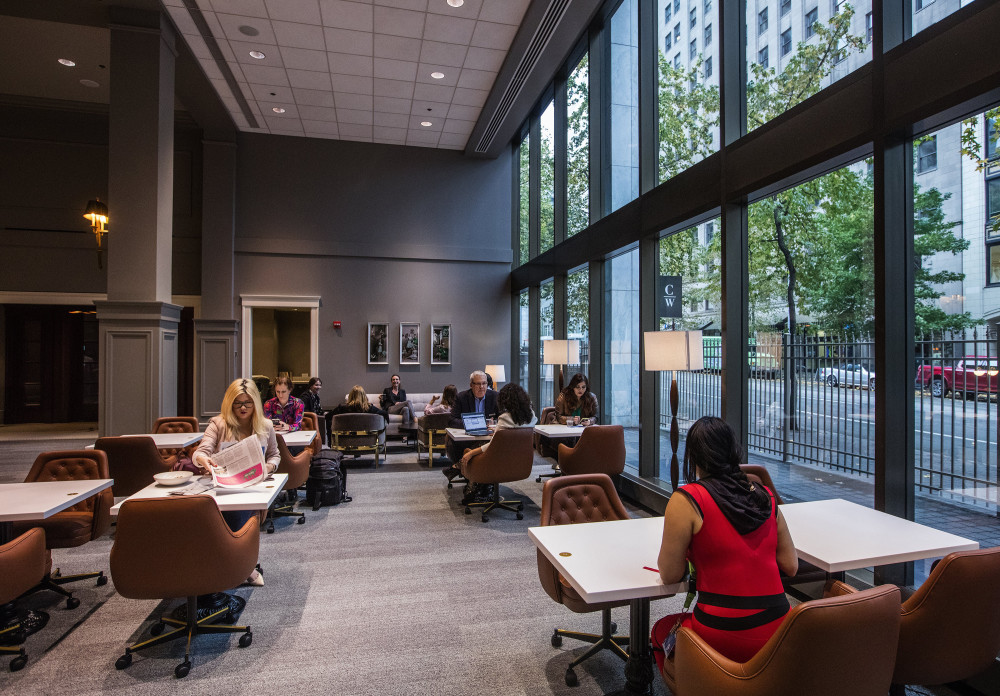By Ann Marie van den Hurk
Lexington Herald-Leader
WWR Article Summary (tl;dr) Catherine Avery, the owner of productivitybydesign.com says that by not having a dedicated workspace, you are NOT honoring the work you do. She says that is one of most common mistakes people make when they are remotely working.
Lexington Herald-Leader
As businesses shift toward more flexible jobs and remote work for their employees as well as entrepreneurs starting up their companies, the need for quality workspaces increases.
According to Gallup research, 43 percent of employees in 2016 said they worked remotely at least sometimes.
The quality of workspace is vital to productivity. Let’s think about it. How many hours do you think you spend in your workspace? Four to eight hours perhaps or longer, right?
Before we go any further, let us define what an office is.
There are a lot of misconceptions based on traditional mindsets. An office is “the place in which a professional person conducts business” per the Merriam-Webster dictionary. That can mean from a spot at the local coffee shop or the dining room table where junk mail piles up on as you come through the door.
buy flagyl generic buy flagyl online no prescription
Are those locations idea for an office? Maybe or maybe not. It depends on your work style, but Catherine Avery, the owner of productivitybydesign.com, shares one of the most significant roles in productivity, is having a dedicated space for work.
She says by not having that dedicated workspace you are not honoring the work you do. That is one of most common mistakes people make when they are remotely working.
The image that comes to mind often for a remote worker is that person with a laptop with charger cord still attached, and papers piled on top of it wandering around the house looking for space and a pen. That does not seem very efficient, productive, or healthy.
Avery maintains that carving out a workspace does not have to be difficult. Having a desk in the kitchen or the corner of a less traveled room will work, but avoid the home office in the bedroom for stress-related issues which can translate into sleep disruptions.
Ideally, it is great to have a room as your workspace with a door. If that is not an option, then the key is developing a space where you can train yourself to know this is where I work and create a mental wall and door around the area.
There are some tips to creating a workspace that promotes wellness and productivity including the use of natural light and desk position. Put some thought into the workspace.
The top three things you need to incorporate in a home office space Avery suggests:
1. Create an area of your own to work. It cannot be said enough how important this is to your productivity. It can be countertop in the kitchen where your laptop is, a corner in the den with a desk, or a whole room in the house. If your workspace is in a shared place, many will create a screen to add separation.
2. Purchase an ergonomic chair to sit in at your desk. Invest in a good chair that fits you and feels good. Also, depending on your space, sit-stand desks are becoming more available and affordable. There are DIY options to make a sit-stand desk. Do what your budget affords.
3. Develop a filing system to keep you in organized. Avery says there are two types of filers: filers and pilers. Figure out which one is you then try a few filling systems out to see what suits you. In her own business, Avery uses a magazine holder for her bookkeeper that has everything her bookkeeper needs including a stapler, envelops, and stamps so when the bookkeeper arrives all she has to do is go to her recycled chest of drawers and pull out the bookkeeping holder and hand it off.
When you are developing a home workspace understand that every journey begins with a small step and a more significant purpose, Avery said. And being mindful in designing the space improves the creative and productive energy dramatically allowing you to do more.
___
ABOUT THE WRITER
Ann Marie van den Hurk, an accredited public relations professional, is principal of Mind the Gap Public Relations and author of “Social Media Crisis Communications.”














































































































































































































































































































































































